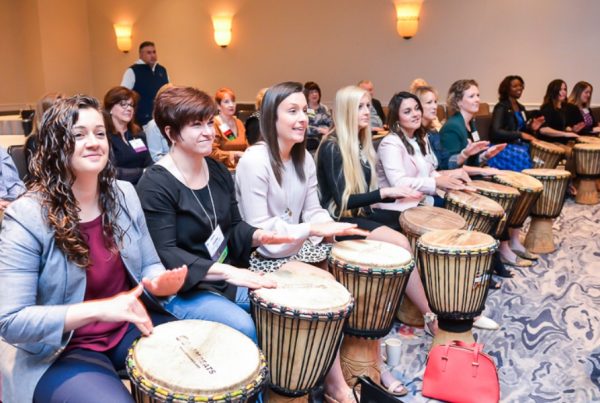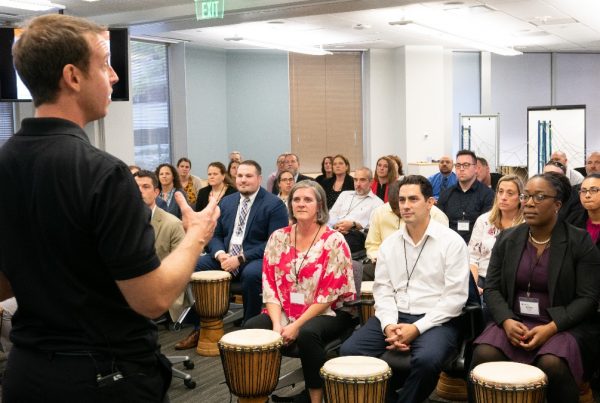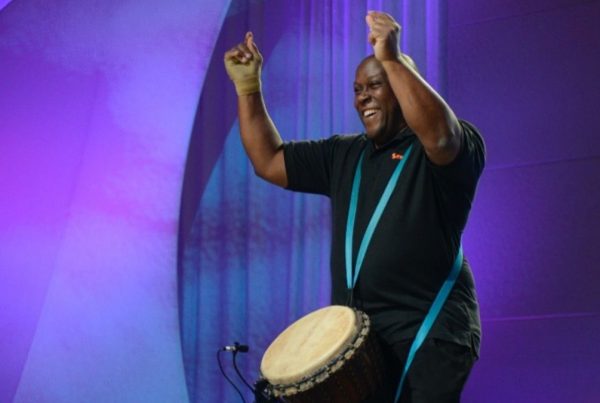I could see him approaching me from behind the group of people I was chatting with. He was well-dressed, presenting a sharp appearance and a commanding presence. It was clear he wanted to talk. As I completed the conversation and shook hands with those in front of me, he stepped forward, a stern look on his face.
With no greeting or introduction he began, “When I first walked into this training, I thought it was stupid.” He paused. Then a huge smile erupted across his face, and he exclaimed, “But now I LOVE the drums!” He shook my hand vigorously, clapped me on the back, and spent the next 15 minutes telling me how much value he got from his participation in the leadership development drumming workshop we just finished, how much he learned through the metaphor of music, and how it all applies so directly to his job as a leader.
What created such a magical transformation in this leader? What moved him from being a skeptic to an advocate? How exactly do our experiential drumming workshops work? While I would like to say it’s magic, in fact our corporate drumming workshops are built on the science of experiential learning, and the research done by the well-known cognitive scientist David Kolb.
Kolb wrote one of the most influential books in the field of experiential learning, Experiential Learning: Experience as the Source of Learning and Development, and his ideas have had a profound influence on the design and development of experiential learning models. Using music as an experiential learning tool in the business world lines up directly with the experiential learning model proposed by David Kolb, and further validated by modern cognitive science.
Kolb’s model has four elements which are well-suited to experiential learning through music:
- Concrete Experience – we experience the process of learning to play music together
- Reflective Observation – we ask ourselves what worked, what didn’t, and what professional skills made a difference (leadership, communication, collaboration, etc.)
- Abstract Conceptualization – we make connections between what we learned during the collective music making experience and what we do on the job every day as professionals
- Active Experimentation – we apply the above learnings to successfully complete the piece of music we are learning, and then apply those same learnings in our professional lives to successfully produce the results we are aiming for.
One of Kolb’s main tenets is that for knowledge to be serviceable, it has to be learned through experience. If not, this knowledge is isolated from experience and not likely to be applied to new situations. So we use the musical environment to create experiences which bring forth specific learnings around topics such as leadership, diversity, change management and collaboration. We then invite the participants to draw connections between their experiential learning through music, and what they do every day on the job as professionals. Not to mention we deliver it all with a heavy dose of engagement and fun. That’s what drives learning and transforms even the most hardened skeptics into enthusiastic advocates!





